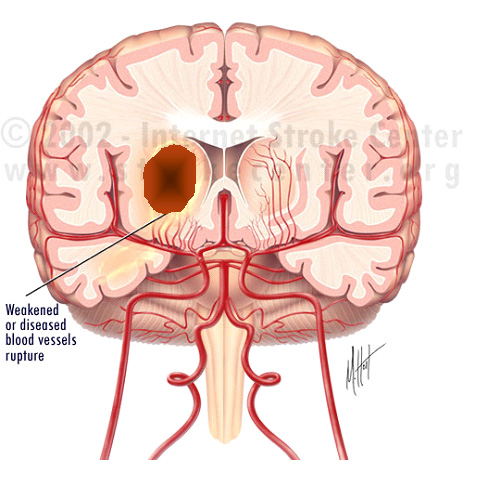According to the World Health Organization, 15 million people suffer from stroke worldwide each year, kills 5m people annually, 2 killer worldwide.
A stroke, brain attack, or cerebrovascular accident, is the sudden death of brain cells caused by a lack of blood supply and oxygen to the brain. Oxygen is essential to maintaining normal brain function and without it, the cells constituting the brain cannot survive and begin to die after few minutes.

Brain-Body Contralaterality
Riskfactors
Non-Modifiable
- genetically determined
Modifiable
result of lifestyle
- Hypertension
- Heart disease
- Hypercholesterolemia
- Diabetes
- Cigarette smoking
- Heavy alcohol intake
- Obesity
- Physical inactivity / sedentary lifestyle
- Stress
There are two main types of stroke:
Ischemic strokes or cerebral infarcts: 80% of strokes result from a blockage or a reduction of blood flow in an artery that irrigates the brain. They are caused either by a blood clot (thrombus) which blocks the blood vessel or by the buildup of plaque (often due to cholesterol) within the arteries which narrows vessels resulting in a loss of blood flow.

Haemorrhagic strokes represent 20% of strokes, due to the rupture of an artery within the brain triggering an intracerebral haemorrhage (15% of strokes) or to the rupture of an aneurysm (arteriovenous malformation) entailing subarachnoid haemorrhage (5% of strokes).

What are the consequences of a stroke?
Resulting disabilities will vary depending on stroke location and severity.
After a stroke, brain cells die in the affected areas resulting to damaged or even lose neurons. Patients will often suffer physical disabilities such as partial loss of motor functions or hemiplegia, sensory loss, language disorders, aphasia, visual disorders, and even memory loss.
Level of recovery will vary from patient to patient according to the stroke location and severity.
